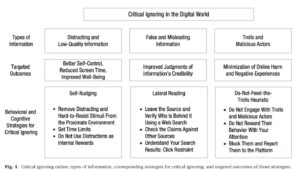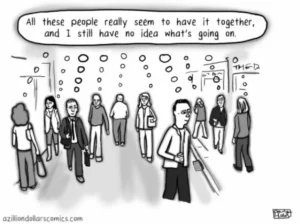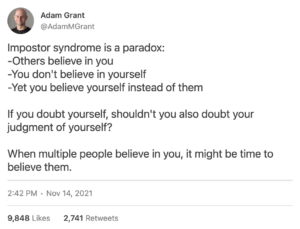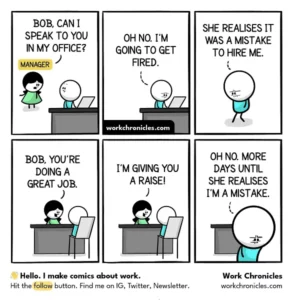“I feel like I have too many tabs open in my brain,” explained my friend. I can totally relate. At the end of the day, my brain often hurts. I am overwhelmed by the relentless stream of information that begins the moment I look at my phone in the morning until I put it away before going to bed. Some of it is worth attending to — an email about a deadline, a text from my mother, a new study about the psychological effects of morning coffee, an update from a patient, or an article about the war in Ukraine.
But the lion’s share of notifications and announcements don’t deserve a moment of attention … but get it anyway. I sit down to work but instead click on a “breaking news” story with the irresistible title DNA match reunites missing daughter with her family 51 years after she was kidnapped, family says. As the old saying goes, inquiring minds want to know. I read the story and then another about a case of chickenpox that turned out to be Ebola and then another about a one-eyed three-legged cat. Twenty minutes later, I’m still scrolling.
I like to think of myself as someone who has a reasonable amount of self-control but as the day wears on, clickbait often gets the better of me. It’s downright hard not to tumble down the rabbit hole of mind-numbing but curiosity-peaking titles like:
She dragged her plate across the pool. What happened next blew my mind
When you read these 19 shocking food facts, you’ll never want to eat again
He thought it was Bigfoot’s skull, but then experts told him THIS
A new research paper published in Current Directions in Psychological Science offers some hope to help counteract the challenges of attention-grabbing online traps that are not only low-quality but also often full of misinformation. The authors argue that critical ignoring — deliberately and strategically choosing what to disregard and where to invest one’s limited attentional capacities — is an essential life skill for citizens of the digital world. In addition to keeping us informed, critical ignoring can also help us stay sane.
When it comes to recognizing and resisting online manipulation, critical thinking is the skill that typically comes to mind. Defined as “thinking that is purposeful, reasoned, and goal-directed,” critical thinking enables us to search for knowledge by examining it closely and considering it from multiple angles. But when the world comes to us filtered through digital devices, there is no longer a need to decide which information to seek. It’s coming at us whether we like it or not. Spending time and energy considering material that should have been ignored in the first place wastes our time and hijacks valuable cognitive resources. Instead of focusing on critical thinking to protect us, focus on critical ignoring:
Teaching the competence of critical ignoring requires a paradigm shift in educators’ thinking, from a sole focus on the power and promise of paying close attention to an additional emphasis on the power of ignoring. Encouraging students and other online users to embrace critical ignoring can empower them to shield themselves from the excesses, traps, and information disorders of today’s attention economy.
From early on, we are told to pay attention. Learning what to ignore is just as valuable. Here are three tools to help you develop the skills of critical ignoring:

Source: Current Directions in Psychological Science
1. Self-nudging
Low-quality information is “as tempting to the attentional system as junk food is to the taste buds.” The key to limiting these temptations is not motivation or willpower, rather, it entails selecting situations that optimize healthy choices. For instance, if you want to eat fewer M&Ms and more carrots, put the candy in a hard-to-reach place and put the healthy snack on the counter. Similarly, if you want to manage your information diet, set time limits on the use of social media, remove notifications, and consider deactivating the most distracting social media apps. The goal of self-nudging is to take control of your information environment.
2. Lateral Reading
In a digital environment, looks can be deceiving. Slick logos and sophisticated looking websites that appear trustworthy may be anything but. No matter how much critical thinking we deploy, it is not always easy to discern the validity of an article. Reflecting on the content of a questionable source is a waste of time. According to professional fact-checkers, the best strategy for deciding whether or not to believe a source is to engage in lateral reading. Lateral reading entails looking up the author or organization and the claims elsewhere. Instead of dwelling on an unfamiliar site, open new “lateral” tabs to search about the organization or individual behind it. If they sound suspicious, ignore their site and its content.
3. Adopt A Do-Not-Feed-The-Trolls Code of Conduct
An entirely new vocabulary has been invented to describe online harassment and disinformation tactics such as:
-
Flooding – inundating online spaces with a torrent of messages to dominate and disrupt conversation and drown out dissenting voices.
-
Trolling – a form of online harassment that involves posting provocative and inflammatory messages in order to disrupt the conversation and upset other people.
-
JAQing – (‘just asking questions’) is a tactic of disingenuously framing false or misleading statements as questions.
-
Sealioning – a type of trolling and a harassment tactic of pestering participants in online discussions with disingenuous questions and incessant requests for evidence under the guise of sincerity. There is nothing cute about these sea lions.
The most productive response to these taunting tactics is to ignore them. Resisting engaging with these individuals or their claims diminishes their power. Not feeding the trolls involves two key rules:
First, do not respond directly to trolls; do not correct them, engage in debate, retaliate, or troll in response.
Second, instead, block trolls and report them to the platform. Withdrawing the negative engagement they seek lessens their impact and erodes their motivation to engage in anti-social behavior.
Bottom Line: Separate the news from the noise. Learning the skill of critical ignoring will allow you to thoughtfully and deliberately allocate your attentional resources and disregard the rest.
As William James observed, “The art of being wise is the art of knowing what to overlook.”
I wish you all the best,
Dr. Samantha Boardman











